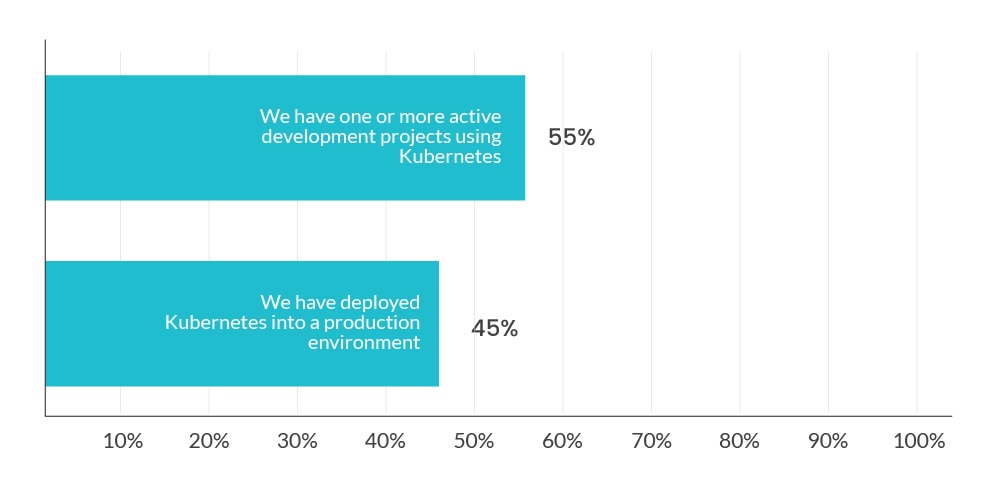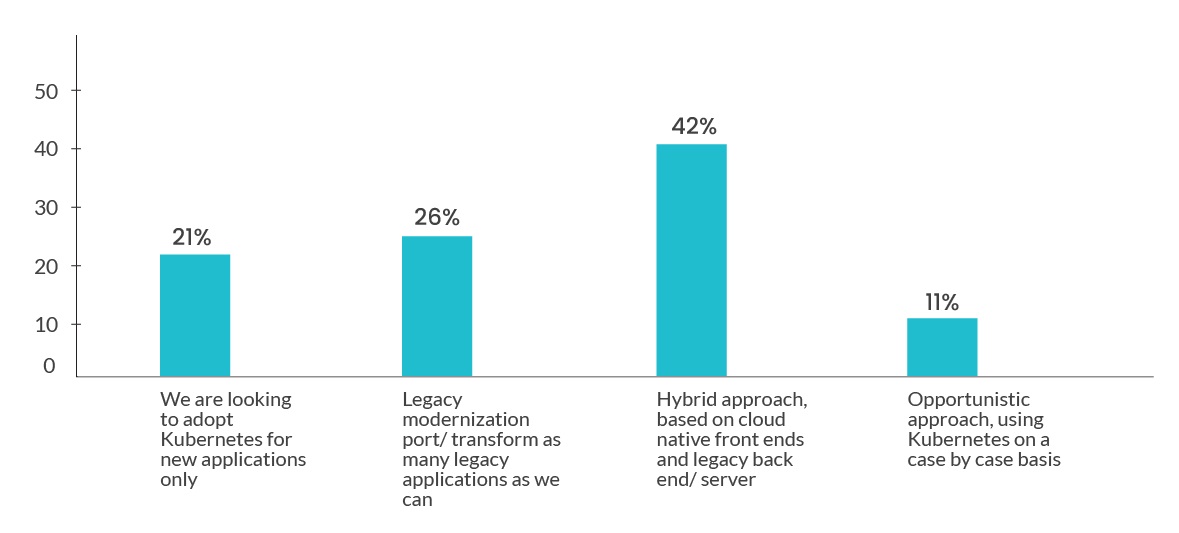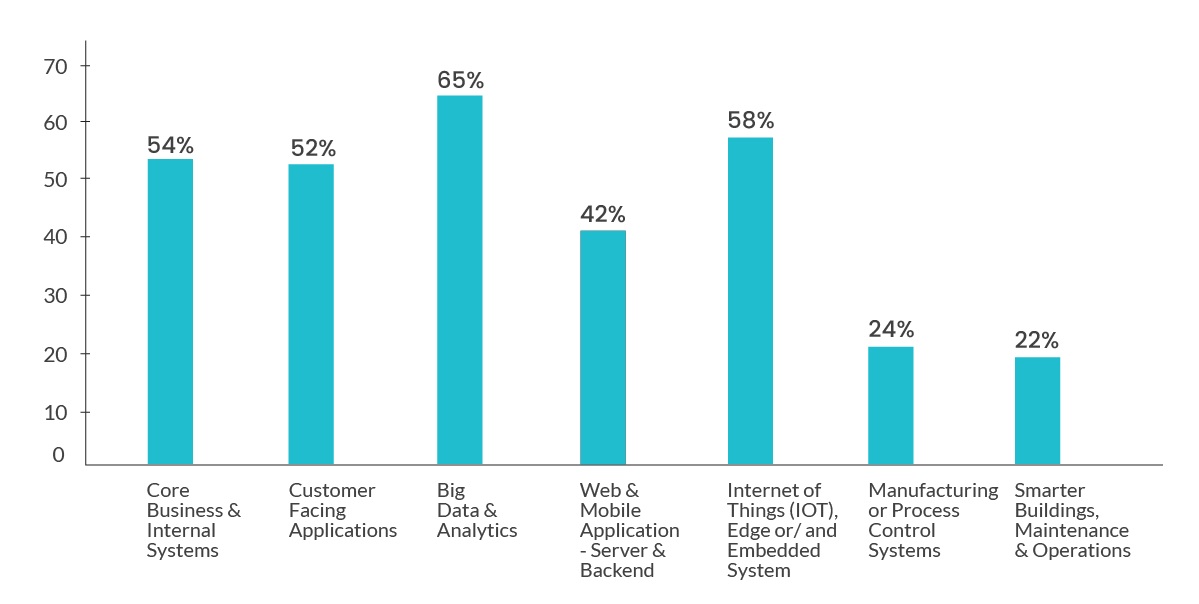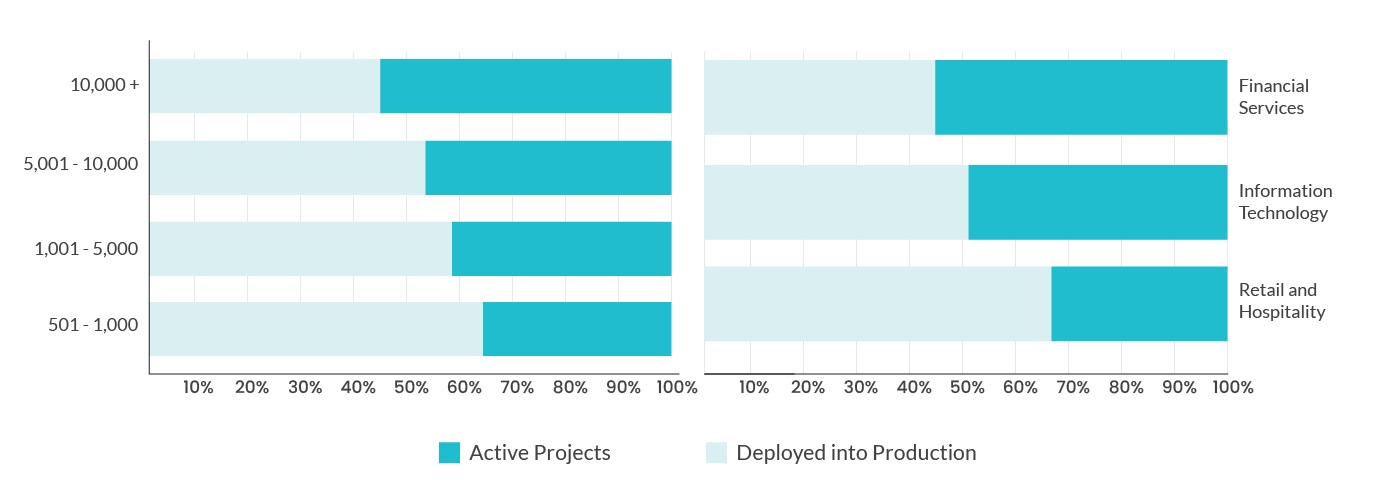Progress announced the speaker lineup for the MarkLogic World Tour US, taking place September 23-25, 2024, at the Bethesda Marriott in Maryland.
We're hearing a lot about Kubernetes right now (let's face it, who isn't?), but just how much of that attention is merited? We wanted to see if Kubernetes was being widely adopted, if so by whom, and how those using it were applying the technology to boost their businesses and systems. So we conducted a survey, to explore and unpack these questions and find out the state of Kubernetes in the enterprise today.
We received more than 1,000 responses to our survey, of which 301 respondents are actively using Kubernetes in some form. This is an important statistic in itself: to put it simply, Kubernetes is here, and its use is growing. Nonetheless, while most (if not all) tech-influenced organizations might be talking about Kubernetes, only about a third are actually doing it. This blog outlines who those organizations are, how they are using Kubernetes, why they are using it, and what challenges they foresee from its application in the next two years.
1: A high proportion of organizations are still in the early stages of adoption
It's clear from the figures we've already stated that the majority of those using Kubernetes are in early stages of adoption. Of the 301 active organizations that have taken it beyond a pilot stage, 55% are using it for one or more specific projects, and 45% have moved to a full production environment.
This proportion is unsurprising considering the nascent nature of the platform, and indicates organizations are exploring what it can do for their businesses and how to deploy it effectively. Nonetheless, that's still a lot of production projects already using Kubernetes.

2: Kubernetes offers a great way to leverage legacy
Interestingly, just 21% of organizations are considering using Kubernetes for new applications only, whereas 42% are taking a hybrid approach, building new front ends onto legacy systems. Kubernetes creates an opportunity to align older applications with today's business needs, breathing new life into existing databases and services, and increasing their lifetime value.
A further 26% are considering how to use Kubernetes to port/transform existing applications, looking to move on from their legacy systems and making the most of the new capabilities Kubernetes offers. Overall, we can see how Kubernetes needs to take account of existing systems and needs, whether re-facing or re-architecting.

3: Kubernetes is being used in a wide variety of applications
Big Data and analytics is the most popular use case for Kubernetes, according to 64% of respondents. This shows how distributed data sources are increasingly important to modern enterprise and the flexibility of Kubernetes systems can allow better utilization of these sources.
It is also being considered for a wide variety of applications - from IoT and Edge (58%), to customer-facing apps (52%) and core business and internal systems (53%).

4: Banking and larger organizations are more advanced in their adoption
Our survey results show that banking and larger organizations are more advanced in their adoption of Kubernetes, with 55% of organizations with more than 10,000 seats deploying Kubernetes into a production environment. Compare this to the smallest companies (under 1,000 seats) where just 36% have deployed to production.
This makes sense – larger companies, as well as having the resources to build production capabilities quickly, will have more opportunities to apply new technologies such as Kubernetes across their business interests.
In terms of sectors, Banking leads the way with 55% deploying Kubernetes to full production. This beats out technology companies (46%) and retail and hospitality (33%). This could be attributed to banking's large legacy systems benefiting from new front-ends, bringing better usability to old data management systems. Plus of course banks do like to show themselves as leading edge!

Industry News
Citrix announced the general availability of Citrix VDA for macOS, expanding their desktop virtualization solutions, and MacStadium support this launch with its industry-leading IaaS offering, optimized for Citrix VDA for macOS deployments in the cloud.
Elastic announced the Elasticsearch Open Inference API now supports Hugging Face models with native chunking through the integration of the semantic_text field.
Codecov by Sentry, a dedicated code coverage reporting solution, announced Bundle Analysis and Test Analytics, two new solutions designed to accelerate workflows and arm developers with actionable insights to create a seamless development experience.
NightVision released API eNVy, an Application Programming Interface (API) solution that enables organizations to discover and document APIs in seconds.
Kong announced the global expansion of its Kong Konnect Dedicated Cloud Gateways.
MacStadium announced the General Availability of Orka Desktop 3.0, a powerful, user-friendly tool that allows developers, testers, and macOS admins to create, test, and manage macOS virtual machines (VMs) on local Apple silicon-based computers.
Komodor announced Klaudia, a Generative AI (GenAI) agent for troubleshooting and remediating operational issues, as well as optimizing Kubernetes environments.
Inflectra announced the launch of Rapise v8, a test automation solution that uses the power of Generative AI to deliver true autonomous testing.
Check Point® Software Technologies Ltd. has been recognized as one of theWorld’s Best Companies of 2024 by TIME and Statista.
Check Point made its debut on the list due to its strong employee satisfaction, revenue growth, and ESG efforts.
Oracle announced the availability of Java 23, the latest version of the programming language and development platform.
JFrog announced a new product integration with NVIDIA NIM microservices, part of the NVIDIA AI Enterprise software platform.
Tigera announced several new features for Calico Cloud and Calico Enterprise to improve the efficiency of remediating vulnerabilities in container images, and ensure compatibility with the latest deployment options for OpenShift.
Gearset announced the acquisition of Clayton, a code analysis platform designed specifically for Salesforce.
Docker is introducing a new way for developers and organizations to access its suite of products – including Docker Desktop, Docker Hub, Docker Trusted Content, Docker Scout, Docker Build Cloud, and Testcontainers Cloud.




